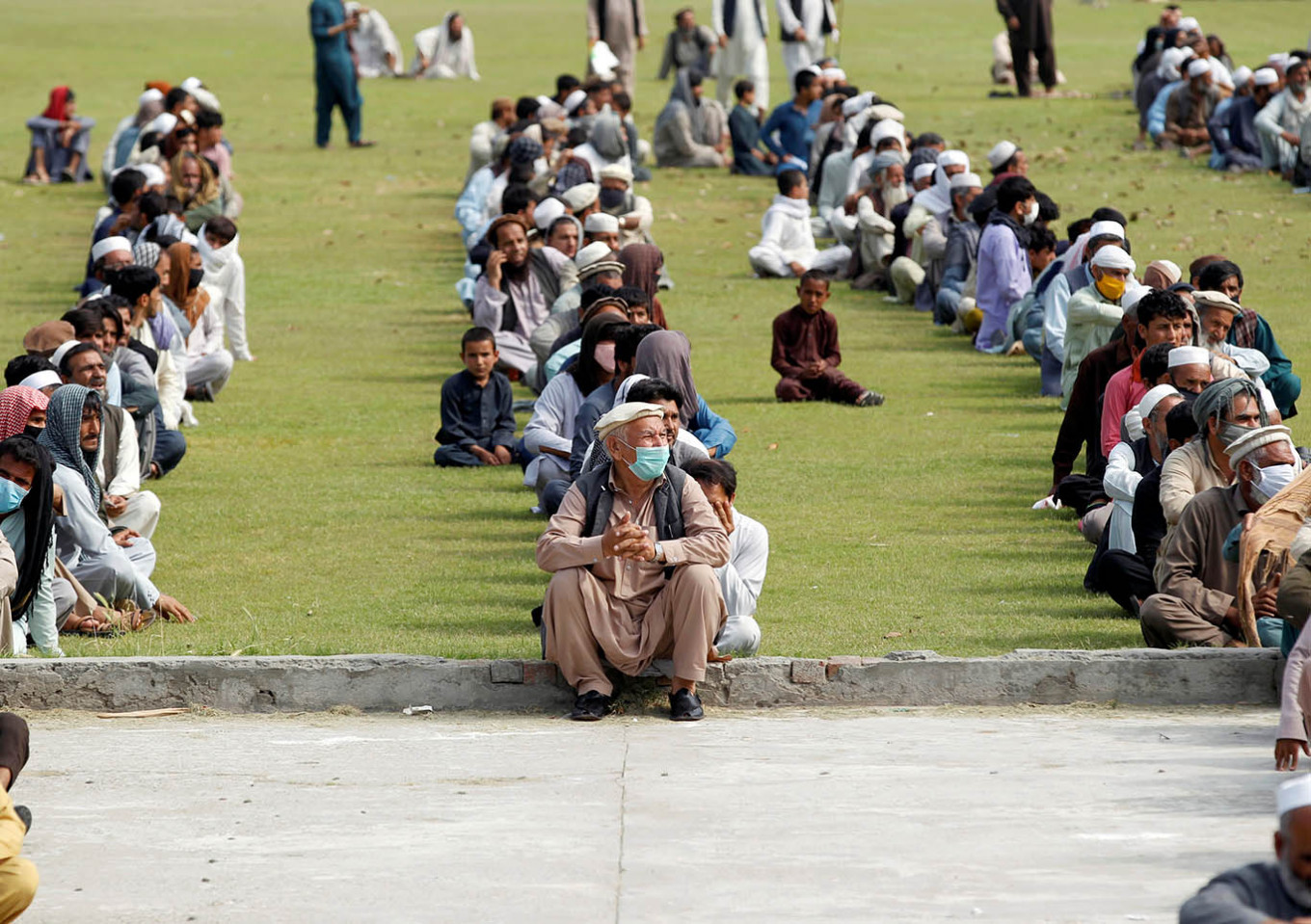Popular Reads
Top Results
Can't find what you're looking for?
View all search resultsPopular Reads
Top Results
Can't find what you're looking for?
View all search results'Should I buy a mask or food?'. South Asia's poor face stark choice
Change text size
Gift Premium Articles
to Anyone
B
uy a mask and let his family go hungry, or buy food and go out into the crowded city without one - that is the stark choice facing Hayatullah Khan, an Afghan laborer whose daily earnings have fallen below $1.50 during the coronavirus pandemic.
Like many poor South Asians, Khan has no choice but to leave the house for work. But even without the hit to his earnings from the coronavirus pandemic, he would have struggled to afford the mask authorities tell him he should wear.
"I have earned less than 100 afghani ($1.32) today. What am I going to do?," Khan told the Thomson Reuters Foundation in the Afghan capital Kabul. "Should I buy a mask or food for my family?"
Wearing a mask in public is now compulsory in India, Pakistan and Sri Lanka and advised by Afghanistan and Bangladesh, and demand and prices have soared.
With basic disposable mask now costing up to $7 in some places, that has created a new form of inequality in cities where hundreds of millions live in cramped, unhygienic conditions.
Meenakshi Ganguly, South Asia director for Human Rights Watch, said coronavirus lockdown measures had disproportionately hurt marginalized communities.
"Certainly the coronavirus itself does not distinguish between prince or pauper, race or religion," said Ganguly.
"But how it impacts individuals differs vastly depending on their access to food, shelter, health and other basic needs."
Mark-ups
In India, the business tycoon Anand Mahindra had to backtrack after tweeting an image of a woman and small child wearing leaves as makeshift masks with the words, "a reminder that nature provides us with all that we need".
He deleted the tweet saying it was "insensitive to the inequity of the situation" after others pointed out there was no evidence leaves provided protection from the virus.
In Sri Lanka, authorities have capped prices at 15 rupees (eight cents) for a disposable surgical-style mask and 150 rupees for the closer-fitting ones sometimes called respirators.
Yet locals said it was difficult to find either at those prices, with pharmacies marking up costs.
"Earlier we bought surgical masks for 15 rupees, but now they are not available at that price and some sell the same masks at 75 rupees," said Hashan, who lives in a slum in the capital Colombo.
"So most of the people in our area are wearing homemade masks now," he said, declining to give his full name as he was outside during the lockdown.
South Asia has been less hard hit by the virus than many other parts of the world, with confirmed coronavirus deaths in India - a country of 1.3 billion - still below the 1,000 mark.
But Nipuna Kumbalathara, a spokesman for Oxfam in Asia, said cases like Hashan's highlighted the need for greater public investment.
"Clearly people who are struggling to put meals on their tables can't pay for their safety kits, testing or care," he said by email, urging governments to provide protective gear to poor and vulnerable people.
DIY masks
The World Health Organization says masks only need to be worn by those who are sick and showing symptoms, and those caring for people suspected to have the disease.
Although many governments are mandating the use of masks to curb the spread of the virus as they relax lockdown measures, others have urged the public not to buy them while there are shortages to ensure adequate supplies for healthcare workers.
In India, the government has released a manual for DIY face-coverings, including ones using rubber bands.
Many South Asians have found stopgap ways to cover their faces - from the loose end of sarees and scarves to handkerchiefs and towels - used before the outbreak to block out the sun, dust and pollution.
Meanwhile, police teams, charities and women's self-help groups have been making millions of washable masks that they give to poor and rural communities free or at a low cost.
Saral Design Solutions, a Mumbai-based start-up that makes low-cost sanitary pads, has switched to manufacturing up to 70 three-ply disposable surgical masks every minute for less than 6 cents each.
But these are the exception - most have no choice but to pay over the odds for poor-quality masks that they are only rarely able to wash.
"I have been using this one for many days now," said autorickshaw driver Gul Pacha Pacha in Kabul, pointing to a dirty, worn disposable mask as middle-class Afghan men wearing gloves and proper face-coverings walked by.
"It is difficult to breathe with it on, so I only wear it when I have passengers."










